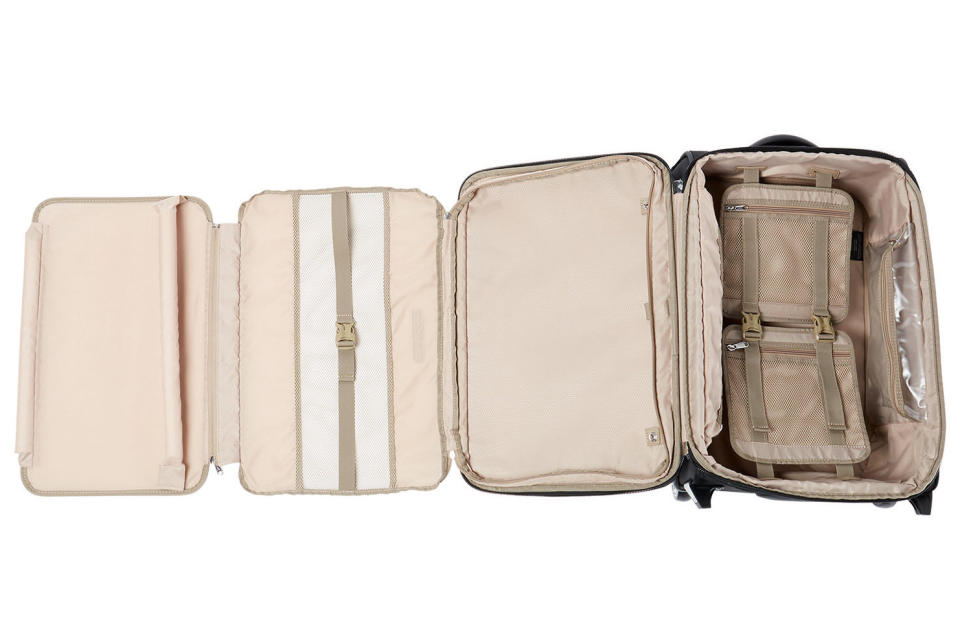Airline baggage fees are out of control — how to save

Travelers have benefitted from lower airfare over the past year, but airlines have found other ways to get paid.
On Wednesday, the U.S. Department of Transportation revealed that airlines collected a record $1.2 billion in checked bag fees during the second quarter of 2017. The Associated Press reports that this is the fifth consecutive quarter these fees have exceeded $1 billion.
When you look at the bigger picture, U.S. travelers paid $7.1 billion in baggage and flight change fees in 2017, according to a September 2017 report from The United States Government Accountability Office (GAO).
In reality, the fees collected are likely much higher. Baggage and flight change fees are the only optional service fees for which revenues are separately reported to the Department of Transportation (DOT). Meaning, the GAO study doesn’t even include other fees, like those imposed for seat selection, priority boarding or extra legroom.
Airlines claim that unbundling services allow them to offer lower base fares, which is true, but it can end up costing travelers more in the long run. The GAO found that on average, customers who paid for at least one checked bag “paid more in total for the airfare and bag fees than they did when airfares included checked baggage.”
For travelers, this means that an affordable plane ticket can quickly turn into an expensive purchase. A few fed up lawmakers are looking for ways to regulate fees, but until that happens, here’s what you can do to save money.
Use a credit card
One very attractive perk of airline credit cards is that many of them allow you to check a bag for free. For instance, American Express cards by Delta Airlines (like the Gold Delta SkyMiles card) lets travelers and up to nine companions check a bag for free. Typically, Delta (DAL) charges $25 for the first bag, so having the credit card can save you $50 per person for a round-trip flight.
On United Airlines (UAL), you and one traveler can check two bags for free if you have the United MileagePlus Explorer Card or the United MileagePlus Club card. With American Airlines (AAL), the first bag is free for you and up to four companions if you hold the Citi AAdvantage Platinum Select World Elite Mastercard or CitiBusiness AAdvantage Platinum Select World Mastercard.
Choose your airline wisely
Lucky for travelers, not all airlines charge for checked bags. On Southwest Airlines (LUV), customers can check two bags for free as long as they weigh less than 50 pounds. Likewise, JetBlue Airways (JBLU) lets travelers check their first bag for free, but charges $50 for the second.
On the flip side, you should also be wary of airlines like Frontier, which boast low fares, but tack on fees for everything. For instance, Frontier charges $25-$60 for a checked bag AND $30-$60 for a carry-on.
On Spirit Airlines, passengers can expect to pay a whopping $37-$65 for a carry-on and $30-$50 for the first checked bag. If you’re not careful, these fees can add up quickly.
Find the perfect carry on

People have gotten really bold with their carry-ons, by choosing bags that are stuffed to the brim and too large for the overhead compartment. The strategy here is to find a roller bag that is the maximum size while also holding the most stuff possible. Need some help finding the perfect bag? The site Wirecutter conducted an exhaustive study and found that the Travelpro Platinum Magna 2 is the best carry-on for most people. It’s small, expandable, durable, and just $185 cost effective.
In addition to your carry-on, most airlines also let you bring on what they call a “personal item.” This usually refers to something like a purse or laptop bag. To get the most bang for your buck, select the most robust “personal item” as possible, like this large tote from Longchamp. It manages to hold a ton of stuff and still fits underneath the seat.
Weigh luggage ahead of time
Sometimes you simply have to pay to check your bag. We understand. What you should never do is pay extra because your bag is overweight. By and large, most airlines will charge you extra money if your checked bag weighs over 50 pounds. And we’re not talking an extra $10. Most airlines will charge you between $50-$100 if your bag is overweight. Some will even charge up to $200 if you’re on an international flight.
Unfortunately, once you’re at the airport, you may have no choice but to pay up. Instead, invest in a luggage scale before you travel so you can weigh your bags at home and avoid the ridiculous fees. Amazon has dozens of luggage scales available for less than $10.
Brittany is a reporter at Yahoo Finance.
Airline profits dropped in 2016 despite making $4.2 billion in baggage fees
Airlines now have to refund fees for delayed baggage
American Airlines invests $6 million in new 3D airport scanners

